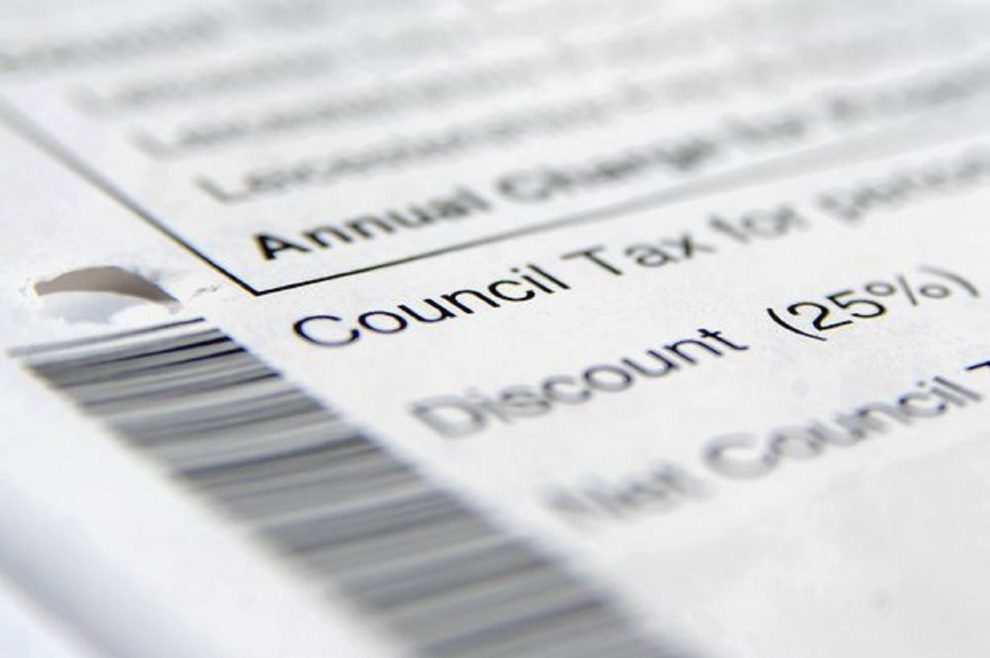A REVIEW of local taxation prepared for the Welsh Government recommends the next Welsh Parliament legislates to reform Council Tax and Business Rates.
The Review states:
‘Council tax is out of date, regressive and distortionary. It needs to be revalued and reformed’.
Reforming Local Government Finance in Wales: Summary of Findings
And the recommendations are bad news for those living in higher-value properties in Wales.
Local Income Tax Rejected
Council Tax bills are calculated in line with property values. Current rates follow eighteen-year-old valuations. In that period, average property prices in Wales have more than doubled.
Depending on their location, properties that were in lower council tax bands in 2003 could end up in higher bands if there was a revaluation.
However, some would see their Council Tax bill fall while almost half would see no change.
The review of local government financing steers away from a local income tax, one of the options considered.
It rejects the proposal as the burden of taxation to fund local services would fall unequally on the working-age population. Wales’ population is growing older and living longer than ever before.
Hitting the shrinking working-age population by levying local income tax would be an unsaleable proposition.
Proposals double some bills
The proposed top band would include all properties valued at over £424,000. Band H would include all properties valued between £324,000 and Band I’s lower boundary.
Properties in Band H would see their average Council Tax bills double.
In property bands A to C, which includes those properties valued from £44k to £91k, Council Tax bills would drop.
Band D property occupiers would see their bills remain in the same range as now.
Revaluation will not, however, be easy, cheap or quick.
The review warns: ‘The exercise in 2003-2005 cost the equivalent of £26 million in today’s money, required several pieces of legislation and a complex regime to ease the transition for certain taxpayers’.
Evidence from the Institute of Fiscal Studies notes that banding is not the only way to address the issue of what Council Taxpayers shell out for their local services. The IFS examines the removal of the banding structure and the application of a fixed tax rate as a percentage of property values, ‘but retaining existing discounts, premiums and exemptions’.
The full report prefers a hybrid approach to the issue suggested by researchers at Sheffield University, which considers a dynamic review of each local authority’s tax base. It would retain banding and change the amount local authorities receive from the Welsh Government to account for their shifting tax bases.
Valleys gain
Changes in tax-bases would be substantially larger than a pure revaluation.
In most of the Valleys areas, there would be substantial decreases in Council Tax. The largest falls under the Sheffield University proposals would be in Neath Port Talbot (20%) and Merthyr Tydfil (24%).

In Cardiff, the Vale of Glamorgan and Monmouthshire, tax-bases would rise by between a fifth and a third.
Across Wales, under a ‘pure’ revaluation:
- 55% of households see a change in tax bill of less than £50;
- 8% of households lose between £50-£200;
- 12% lose more than £200;
- 12% gain between £50-£200; and
- 13% gain more than £200.
Under the ‘continuous and proportional’ revaluation:
- 30% of households see a change in their tax bill of less than £50;
- 7% of households lose between £50-£200;
- 16% lose more than £200;
- 14% gain between £50-£200; and
- 34% gain more than £200
A long wait for action
The changes to Council Tax and local government finance will take a long time.
The Welsh Government response to the review hints that it is cautious of relying on ‘spot valuations’ to assess Council Tax yield. It prefers a more responsive and data-driven approach.
Announcing the review’s publication this week, Wales’ Finance Minister, Rebecca Evans MS, said: “It is clear the scale of work to radically reform the system would take time and careful management to ensure that local government continues to sustain vitally important revenue streams.”
Cllr Anthony Hunt, WLGA Spokesperson for Finance and Resources said: “Both the Council Tax and Business Rates raise over £2.5bn for local public services and provide a vital funding stream for the things our communities rely on. The Finance Minister is right that any reform will take time and should be fair to those who pay taxes as well.”

Welsh Conservative Shadow Finance Minister, Mark Isherwood said: “Welsh Labour must come clean on its future plans for Council Tax in Wales.
“This proposal appears to pave the way for Labour Ministers to reduce rates in their traditional heartlands, whilst hiking up taxes elsewhere.”
Plaid Cymru did not respond to our request for a comment on the report’s publication.
However, Adam Price has already committed his party to Council Tax reform.
On February 2, he said: “A Plaid Cymru government would go further and reform council tax to make it fairer and more progressive. We will undertake a revaluation, increase the number of bands at the higher end of household evaluations, and ensure that council tax is more proportional to the value of properties.
“We expect that under our proposals, 20% of households in the bottom fifth of income distribution will see their council tax fall by more than £200.”

Ironically, one of his election opponents in Carmarthen East & Dinefwr, Labour’s Rob James attacked Adam Price’s proposals as being too onerous for those living in higher-value properties. But that is the path on which Rob James’ own party seems set.
Division, delay, complexity: waiting for Council Tax reform could well be like waiting for Godot.



















Add Comment